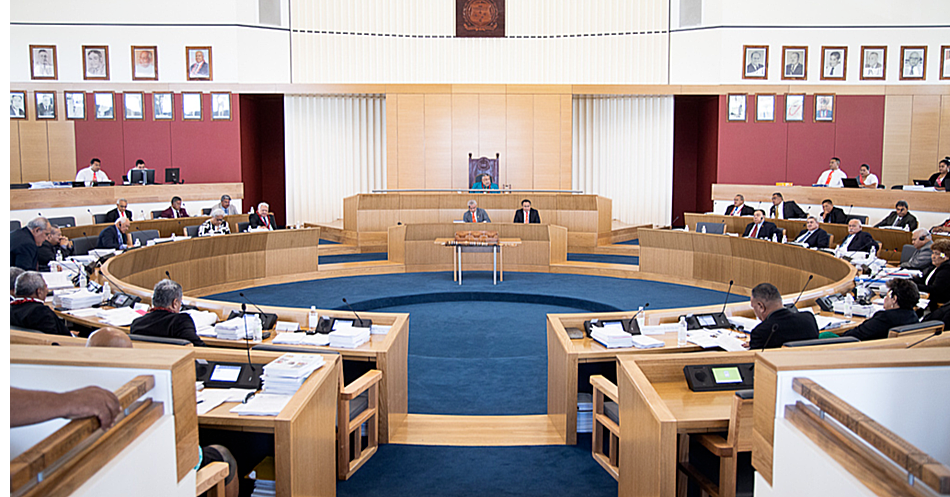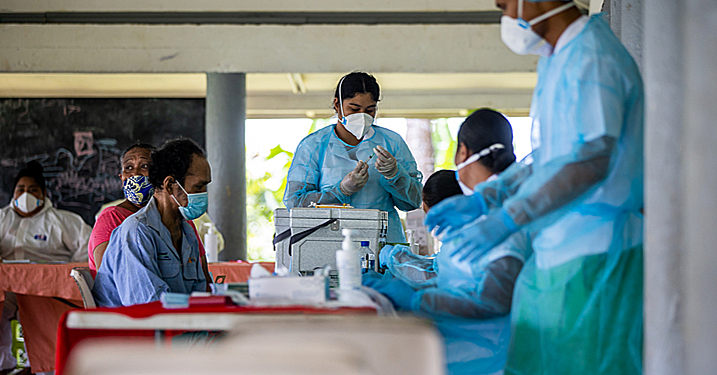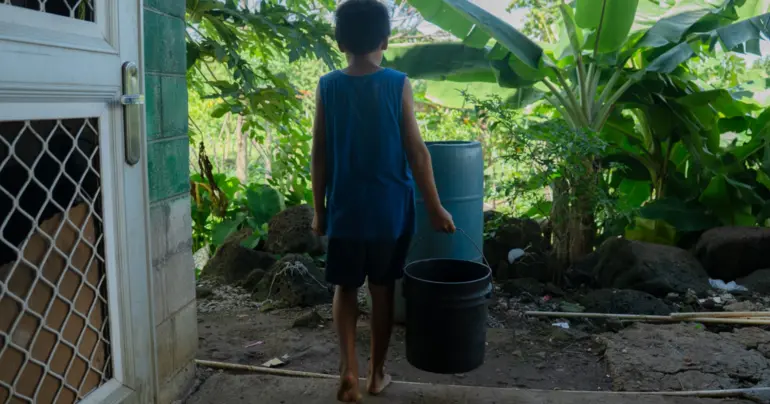Deputy President appointment foreshadows conflict
It was the judges who upheld the people's will in Samoa this year. But it did so in the face of extreme difficulty and disregard and with an attempt to erode their very power hanging over their heads.
After voters ousted the reigning Government in a free and fair election, we became mired in what has been described - and we believe rightfully - as an “administrative coup”.
For four months, the Human Rights Protection Party (H.R.P.P.) refused to accept the will of the people as expressed at the ballot and court orders for them to do. It took until a July ruling from the Court of Appeal for the party to finally buckle and stand down.
The judiciary held firm precisely at a time when it was most under attack.
And even though the Government has now moved to the opposition benches, it is plain to see that its legacy of judicial overhaul will continue to cast a long shadow over our democracy.
That is especially the case with the restructuring of the Land and Titles Court (L.T.C.) rammed through Parliament before many M.P.s even had the chance to read what they were voting for.
News today that former Electoral Commissioner, Faimalomatumua Mathew Lemisiom has been appointed to the newly-created position of the court’s deputy president is the first hint of the enormity of the previous Government’s changes and their effect on the law.
The appointment reflects a cultural attitude that comes from splitting our judicial system in two, as no other legal system has done.
The Land and Titles Court (L.T.C.) was made a law unto its own; its decisions could not be scrutinised by higher legal authorities, such as the Court of Appeal. It was designed to have its own self-contained Court of Appeal and Review, divorcing it and its decision entirely from the judicial process.
The bill’s express purpose was ro remove all legal protections for basic human rights, grounded not only in our constitution, but centuries of case law and judicial wisdom for how to protect human rights against Governments.
"The English common law and equity of England does not apply in the Land and Titles Court,” the law says.
One of its chief purposes is to prevent the decisions of village councils being overturned by courts on human rights grounds, which were derided as “western ideals”.
We wrote at length about the dangers of splitting the judiciary at the time and obtained a copy of a letter signed by the nation’s judges expressing their concerns about the proposal. They were joined by the Ombudsman, the United Nations’ Rapporteur on judicial independence, Amnesty International and several brilliant local and international minds who spoke out against the bill.
Michael Kirby, perhaps the most high-profile modern jurist to sit on Australia’s High Court, took a deep interest in what he saw as the foundations being laid for an erosion of the rule of law by having a court operate without scrutiny.
Faimalomatumua’s appointment and the manner in which it was brought about suggests that the court has already developed a culture of acting as a lone world - or, to put it less charitably, like a cowboy outfit.
If this is the court’s approach to recruitment and administrative affairs then how can we expect newly empowered L.T.C, judges to wield their power when it comes to cases.
Although the Justice Minister was kept in the dark, the Ministry of Justice and Courts Administration’s C.E.O., Moliei Simi Vaai, confirmed she was aware of the position and that it had never been advertised.
How interested and qualified applicants were meant to know of the position’s very existence was one of a number of questions to which Mrs. Vaai could not provide a satisfactory answer.
“I don’t know how they (job applicants) knew but we received expressions of interest,” she said.
“I don’t ask about those things.”
Perhaps it is time that she did.
For the appointment of such a senior position in what has been made into an incredibly powerful independent body, to not be accompanied by a transparent recruitment process is simply poor governance.
There is no provision for a new deputy’s position in the new law; and the Samoa Observer understands that there was no consultation with the Justice Minister before the changes were ushered in.
Faimalomatumua has played more than a bit part in the drama of the last year. He famously announced, one late March evening, the appointment of a sixth woman candidate to Parliament that would have tied up the Legislative Assembly, coming, as it did, just hours before Tuala Iosefo Ponifasio was to make an announcement of his own that he was moving to join F.A.S.T.
How is it that a public servant of his seniority was made aware of the vacancy?
Faimalomatumua is a lawyer but only the most one-eyed supporters could suggest that he has peerless knowledge of the law and its application in the context.
Why was the position not made a competitive process?
Creating the Deputy Presidency position from whole cloth and making it open only to applicants from a certain clique casts a serious cloud over the court’s most valuable asset: its reputation.










